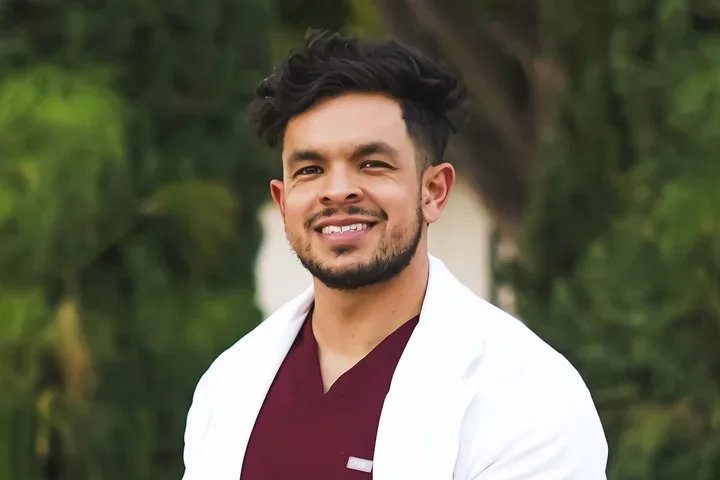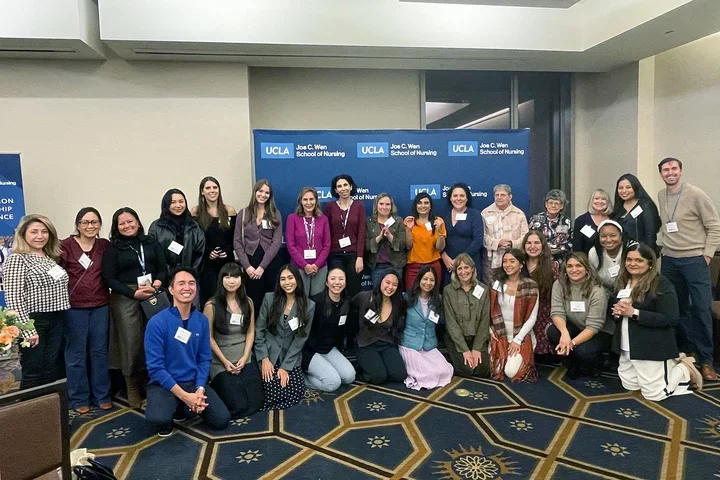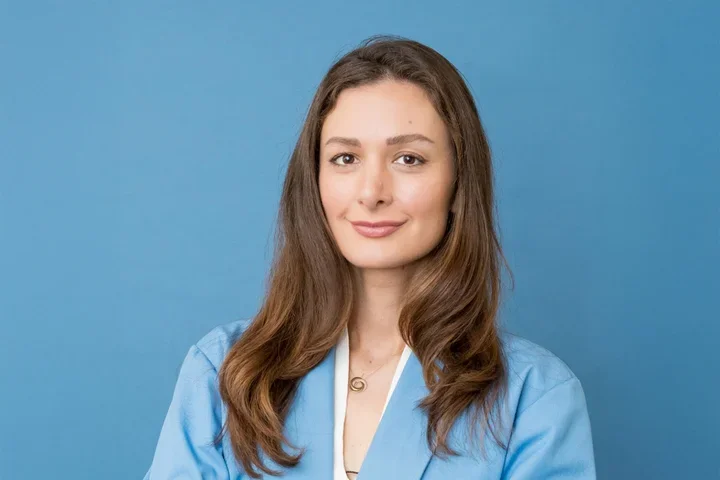National Clinician Scholars Program: Preparing Nurses and Physicians to Become Agents of Change
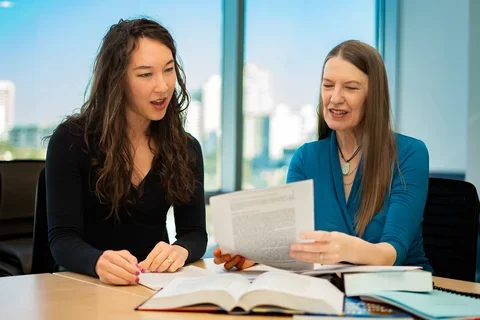
Healthcare happens through personal interactions between caregivers and their patients. Yet the outcomes depend on large-scale factors such as the health delivery system and the patient’s community.
The UCLA National Clinician Scholars Program (NCSP) addresses systemic issues by training nurses and physicians in health services and policy research. The two-year, post-doctoral fellowship equips participants to contribute solutions to some of healthcare’s largest problems.
“Our program focuses on community partnerships and health equity and how to use health services research to transform healthcare to not just make it better generally, but to close disparities and improve health equity,” says Assistant Program Director Kristen Choi, PhD, RN, FAAN.
NCSP nurse and physician Fellows learn research and leadership skills. They design and evaluate a project addressing a pressing health problem and implement the project in partnership with one of twelve community partners.
“We train nurses who are ready to conduct high-impact science, lead health system change, and train nurses to think differently about how to support patient health from upstream. That’s unique and different from other post-doctoral fellowships,” says Dr. Choi.
NCSP stresses interprofessional relationships, notes Associate Program Director MarySue Heilemann, PhD, RN, FAAN. “As a cohort, participants grow together in their knowledge about health systems and health systems policy, while also learning how to collaborate, discuss, problem solve and analyze together. We want them to gain skills for team dynamics and team success.”
Launched UCLA in 2015, NCSP is a continuation of the Robert Wood Johnson Foundation (RWJF) Clinical Scholars Program. That program, in which UCLA was one of four training sites, was geared only to physicians. NCSP includes nurses and operates at UCLA, Duke University, UC San Francisco, University of Michigan, University of Pennsylvania, and Yale University.
Fellows learn from and interact not only with their UCLA cohort, but with NCSP participants at the other institutions and NCSP and RWJF Clinical Scholar alumni, some of whom serve as guest speakers and mentors. Faculty also interact with their institutional counterparts.
“The synergy between us becomes impactful as we can be more strategic about addressing issues affecting healthcare across the nation,” says Dr. Heilemann.
NCSP addresses the national nursing shortage, notes Dr. Choi. Too few nurses obtain doctoral degrees, resulting not only in a shortage of those qualified to teach future nurses, but those qualified to lead needed changes in healthcare.
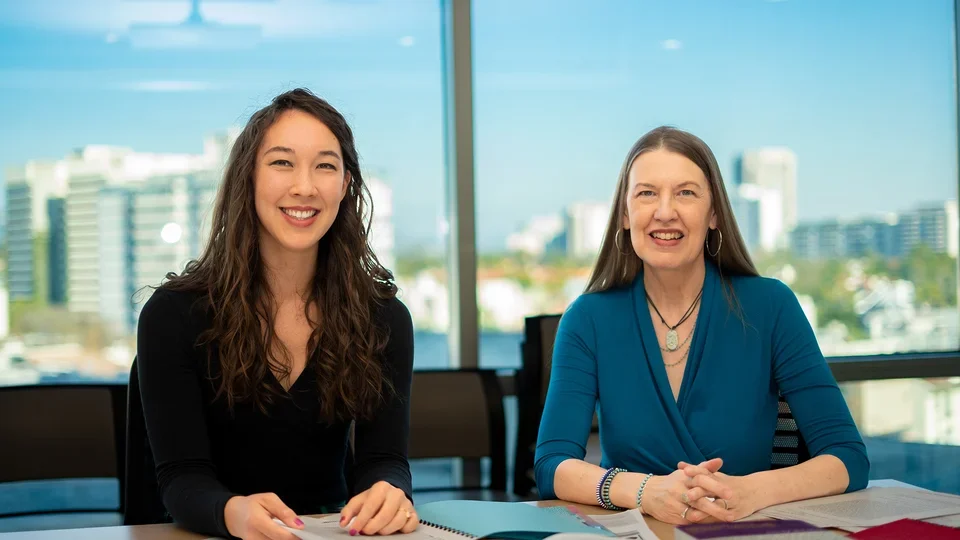
Dr. Choi participated in NCSP as a PhD student at the UCLA School of Nursing. Her project involved screening for Adverse Childhood Experiences (ACEs), a set of ten items known to harm children’s’ health and development.
“Those 10 ACES were developed originally on a population of largely white adults. We thought they might not fully represent the adversity experienced by children from diverse communities,” says Dr. Choi. Working on a community-based project in Chicago with Bonnie Zima, MD, MPH, a child psychiatrist and RWJF alumnus, she found children there were experiencing community violence and other adversities not included in the original ACE screening. Now working with an NCSP physician colleague post-fellowship, Dr. Choi aims to build an evidence base for how to make ACE screening more inclusive.
Previous NCSP participant Hafifa Shabaik, PhD, MSN RN, looked at the mental health needs of older refugee adults. Now an Assistant Professor at Drew University and collaborating with UCLA’s Clinical and Translational Research Center, she is investigating ways to promote mental health service use among this population.
UCLA NCSP community partners include Los Angeles County’s Departments of Health Services, Public Health and Mental Health; the RAND Corporation, Cedars Sinai, the US Department of Veterans Affairs (VA), Kaiser Permanente Southern California, AltaMed, and UCLA Health. Fellows complete their clinical time with these health system partners. Many go on to accept permanent positions, becoming the clinicians and leaders driving change at these organizations.
“Most of the nurse Fellows receive multiple job offers, but many have opted to build their research in schools of nursing, where we have great potential to make change through research and influencing the education of the next generation of nurses,” says Dr. Choi.
Dr. Heilemann notes Fellows who accept positions outside of schools of nursing bring their nursing school perspectives to those settings. For example, Maria Yefimova, BSN, MS, PhD, a Fellow from the first cohort, went on to be the director of academic nursing and patient care research at Stanford University Hospital, which does not have a nursing school. She then moved to UCSF, where she serves as the lead nurse scientist at UCSF Health.
Drs. Choi and Heilemann hope to see the NCSP grow. “I believe focusing on health equity and partnerships with communities produces the kind of nursing leaders we need to solve the problems we face,” says Dr. Choi. Dr. Heilemann adds, “This program allows participants to meet other people who are talented and ambitious and want to make an impact in the world. It’s a unique opportunity to grow in ways they wouldn’t have anywhere else.”
